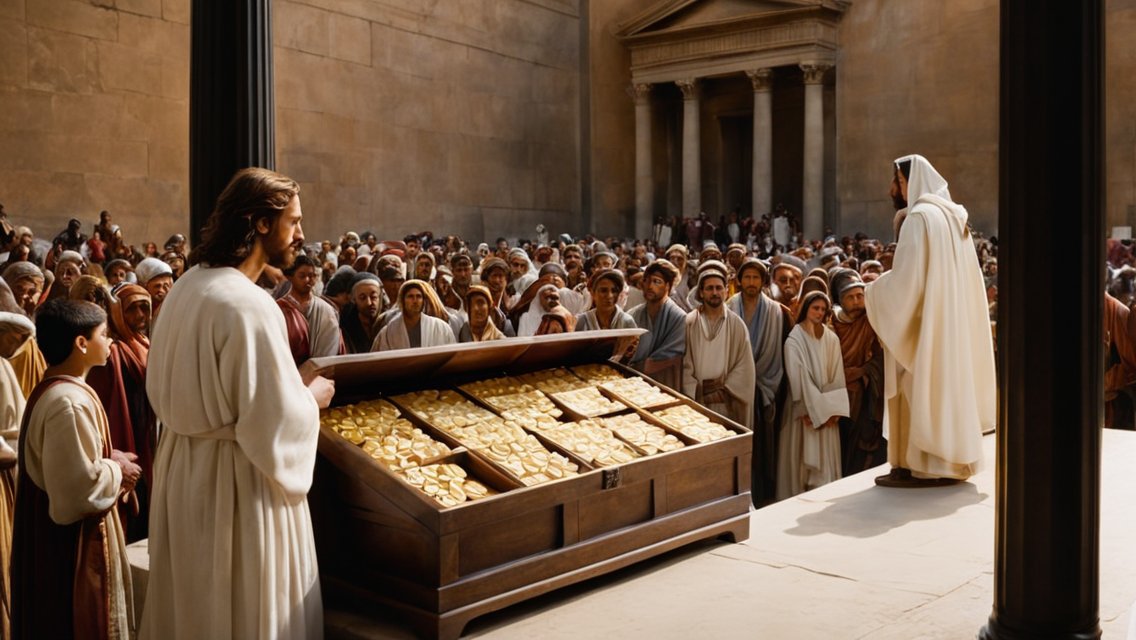29th Sunday Homily in Ordinary Time Year B
With bible quotations and moral story you can build a beautiful homily for 29th Sunday in ordinary time year b. As the scripture says, Son of Man himself did not come to be served but to serve, and to give his life as a ransom for many. Jesus becomes the suffering servant for his people. As we prepare for the 29th Sunday liturgical celebration in the year b, it invites us to reflect on the message that we as the followers of Jesus are called to be the servants to God and servants to others.
Bible Quotations: Beautiful Servant Bible Quotes for Homily
Moral Story: The Servant Leader Moral Story
Readings: Isa 53:10-11, Heb 4:14-16, Mk 10:35-45
1st Reading – Isaiah 53:10-11
10 The LORD was pleased to crush him in infirmity. If he gives his life as an offering for sin, he shall see his descendants in a long life, and the will of the LORD shall be accomplished through him.
11 Because of his affliction he shall see the light in fullness of days; through his suffering, my servant shall justify many, and their guilt he shall bear.
Responsorial Psalm – Psalms 33:4-5, 18-19, 20, 22
R. (22) Lord, let your mercy be on us, as we place our trust in you.
4 Upright is the word of the LORD,
and all his works are trustworthy.
5 He loves justice and right;
of the kindness of the LORD the earth is full.
R. Lord, let your mercy be on us, as we place our trust in you.
18 See, the eyes of the LORD are upon those who fear him,
upon those who hope for his kindness,
19 To deliver them from death
and preserve them in spite of famine.
R. Lord, let your mercy be on us, as we place our trust in you.
20 Our soul waits for the LORD,
who is our help and our shield.
22 May your kindness, O LORD, be upon us
who have put our hope in you.
R. Lord, let your mercy be on us, as we place our trust in you.
2nd Reading – Hebrews 4:14-16
Brothers and sisters:
14 Since we have a great high priest who has passed through the heavens, Jesus, the Son of God, let us hold fast to our confession.
15 For we do not have a high priest who is unable to sympathize with our weaknesses, but one who has similarly been tested in every way, yet without sin.
16 So let us confidently approach the throne of grace to receive mercy and to find grace for timely help.
Alleluia – Mark 10:45
R. Alleluia, alleluia.
45 The Son of Man came to serve
and to give his life as a ransom for many.
R. Alleluia, alleluia.
Gospel – Mark 10:35-45
35 James and John, the sons of Zebedee, came to Jesus and said to him, “Teacher, we want you to do for us whatever we ask of you.”
36 He replied, “What do you wish me to do for you?”
37 They answered him, “Grant that in your glory we may sit one at your right and the other at your left.”
38 Jesus said to them, “You do not know what you are asking. Can you drink the cup that I drink or be baptized with the baptism with which I am baptized?”
39 They said to him, “We can.” Jesus said to them, “The cup that I drink, you will drink, and with the baptism with which I am baptized, you will be baptized;
40 but to sit at my right or at my left is not mine to give but is for those for whom it has been prepared.”
41 When the ten heard this, they became indignant at James and John.
42 Jesus summoned them and said to them, “You know that those who are recognized as rulers over the Gentiles lord it over them, and their great ones make their authority over them felt.
43 But it shall not be so among you. Rather, whoever wishes to be great among you will be your servant;
44 whoever wishes to be first among you will be the slave of all.
45 For the Son of Man did not come to be served but to serve and to give his life as a ransom for many.”

Or Mark 10:42-45
42 Jesus summoned them and said to them, “You know that those who are recognized as rulers over the Gentiles lord it over them, and their great ones make their authority over them felt.
43 But it shall not be so among you. Rather, whoever wishes to be great among you will be your servant;
44 whoever wishes to be first among you will be the slave of all.
45 For the Son of Man did not come to be served but to serve and to give his life as a ransom for many.”
Moral Story For 29th Sunday Homily Year B
In a small village, there lived two brothers, Mark and Simon. They were known for their different approaches to life. Mark was a wealthy businessman who believed that leadership… Continue
Add Some Moral Stories
Add Some Religious Jokes to Your Homily
Add Some Bible Verses to Your Homily
| Bible Verses on Love of God | Bible Verses on Good Shepherd |
| Bible Verses on Servant | Bible Verses on Eternal Life |
| Bible Verses on Marriage | Bible Verses on Inner Sight |
| More Bible Verses | More Bible Verses |
Homily For 29th Sunday in Ordinary Time Year B
God’s Servant: Powerless Authority
“For the Son of Man himself did not come to be served
but to serve, and to give his life as a ransom for many” (Mk)
Money and power tempt human beings. Last Sunday we saw how the rich youth chose to retain his wealth and reject following Jesus. Today, we reflect upon power and its pressure to deviate us from discipleship. The first reading provides us with a portrait of God’s ‘suffering servant’, the second reading comforts us with Jesus, the High Priest, who “feels our weaknesses with us” and the gospel reminds us that Jesus came ” not to be served but to serve.”
In Mark’s gospel, Jesus has already spoken thrice to his disciples about his passion and death as they journey to Jerusalem (8:3 I – 38; 9:30-32; 10:32-34). But his disciples seem more engrossed in the enticements of power and position. Note that the request for a ‘favour’ comes from James and John, two of Jesus’ closest disciples. Moreover, the two seem to be using “family influence’ since they were, what we often call in India, “cousin-brothers” of Jesus. Evangelist Matthew tells us that they made their request through their mother (20:20), Salome. Either Zebedee, their father or Salome, their mother, was closely related either to Mary or Joseph.
The brothers’ request is simple – reserved seats in the most important section of Jesus’ kingly court. When the other disciples hear this request, they are furious. Mind you, their anger is not because the brothers have made an unreasonable request, but because they too aspire for the very same posts! The argumentation might’ve been rather heated when Jesus places before them two ‘paradigms of governance’: one, worldly; the other, godly.
While we often use the two words interchangeably, a distinction can be made between power and authority. Power is usually physical, delegated and can be exercised over human beings as well as animals. Authority, on the other hand, is usually moral, has to be cultivated and can only be exercised over human beings. Thus, for example, I may have the power to kick a dog but it would be odd to say that l have authority over it. It often happens that a person may have authority without power or power without authority.
Those seeking to govern others in the world usually exercise power, not authority. In Hindi, this is called ‘satta’ that can be taken away or decreases as one ages. Conversely, authority can never be taken away and usually increases with age and experience. Do we not often say, for instance, that “President Abdul Kalam is an authority in nuclear physics”? Thus, while his power as President will someday cease, his authority that comes for learning and experience will never end. This is the authority Jesus is speaking about – born from love, service, and sacrifice: “Anyone who wants to become great among you must be your servant.”
As human beings we all exercise some power over others: parents over children, elders over youngsters, teachers over students, executives over employees, priests over people and so on. Let me ask myself: Am I mad about power or de I possess true authority? Do I induce fear through power or earn respect through authority? Do I love and serve those entrusted to my care?
When some people praised a priest for the power he wielded over others, the wise Guruji commented, “This priest is no religious leader.” The people protested, “What, then, is his function?” The Guruji replied, “To inspire, not to legislate; to awaken, not to coerce; to love, not to regulate; to serve, not to be served.”
The Church is called to be a ‘servant church’ in the image of The Servant, Jesus. True, the Pope signs documents with the “servus servorum Dei” (servant of the servants of God) byline; but, beginning with bishops and priests, can we truthfully say that we are a ‘servant church’? “Let us be confident in approaching the throne of grace,” the second reading advises us – that He might give us the graces to serve with love, powerless, yet, brimming with authority.





